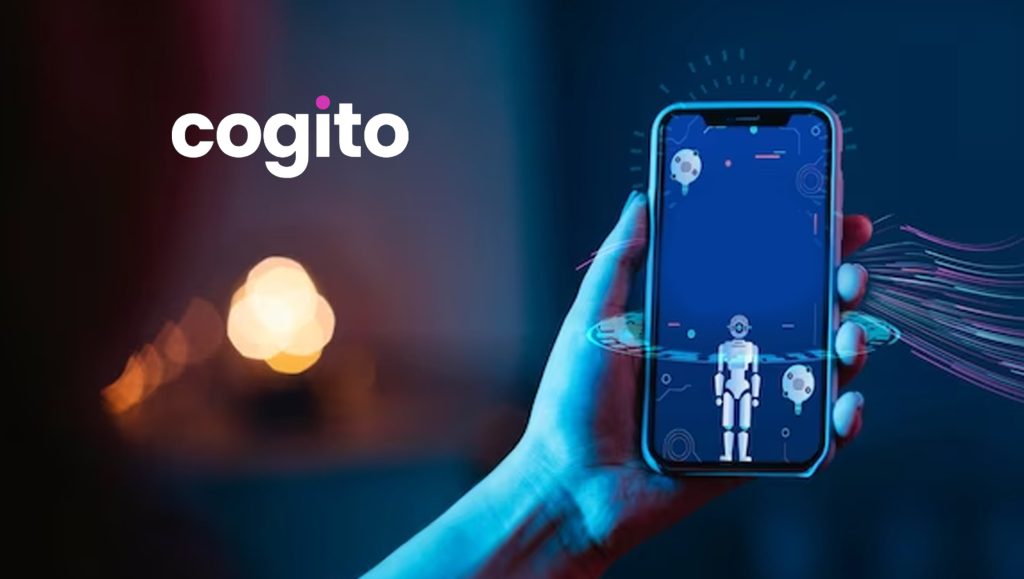New Cogito survey finds 46% of consumers prefer to speak to a human agent, but are comfortable with AI-assisted human interactions
“We are increasingly learning from our customers that 2024 will be about consolidating costs and driving revenue. The first effort to do so is to augment, rather than replace, the agent’s role by integrating AI into existing workflows”
Post this
For most consumers, it’s not a question of if they will reach out to customer support channels, it’s a matter of when, where, and how. More than half (53%) of consumers stated they prefer to chat with a live agent via the telephone when it comes to complex customer service questions or issues, while only 17% would prefer to use technology like live chat via a website or mobile app.
When it comes to interacting with AI for customer service inquiries, nearly half (46%) of consumers surveyed would prefer to speak to a real human but feel comfortable if the agent is using AI in the background to improve the interaction. This data confirms that, while enterprises who don’t take advantage of AI are leaving opportunities and revenue on the table, it’s important to implement the technology strategically. The goal is not to replace agents but rather, empower and inform them with tools and data insights to improve customer service interactions.
“We are increasingly learning from our customers that 2024 will be about consolidating costs and driving revenue. The first effort to do so is to augment, rather than replace, the agent’s role by integrating AI into existing workflows,” said Josh Feast, CEO and co-founder of Cogito. “It’s validating to see consumers agree with this notion — wanting to keep the human touch in the contact center but with the agent using technology to ensure they’re delivering the best service and CX possible.”
The stakes to get the CX right are high, with 76% of consumers surveyed stating a negative customer service experience would impact them choosing a brand’s products/services in the future, with 61% saying they’d consider other brands first, and 15% saying they’d never be a customer again. As AI continues to revolutionize contact center operations, it’s important to balance the human and AI approach to better meet these high customer expectations.
Customer Preferences: Humans and Technology
The immediate future of the contact center is not robots, but AI-assisted human interactions. When implemented effectively, these interactions create a win-win-win situation. Customers receive the benefit of a more informed agent to resolve issues faster; agents are empowered to be more effective in their jobs leading to less turnover and better employee experiences; and lastly, enterprises win with reduced operating costs, improved productivity, and lower customer and employee attrition rates. Contact center leaders should keep these consumer insights in mind to fully understand how customers prefer to engage with humans and technology, and how AI can be used to bolster agent-customer interactions.
Read More: SalesTechStar Interview with Bob Moore, Co-Founder and CEO at Crossbeam
- Nearly half (49%) of consumers surveyed don’t enjoy using chatbots during the customer experience, because they’d prefer to talk to a human or don’t feel they’d understand their inquiry. This is an opportunity for brands to test how technology can elevate and assist humans, not replace them.
- Boomers are the group who least prefer chatbots, with 70% stating they don’t enjoy using them.
- Millennials prefer chatbots the most, with 67% stating they enjoy, or are interested in, using them.
- More than half (55%) of consumers stated having their issues resolved faster via reduced wait times, quicker responses, etc. would improve their next customer experience.
- Over a quarter (32%) of consumers surveyed stated having a more personalized experience, where it feels like the agent knows them, would improve their next customer experience.
- Half (50%) of consumers surveyed stated having additional ways to contact customer service, such as live chat, would improve their next customer experience.
- Only 50% of respondents were satisfied with the wait or hold time in their most recent customer service experience.
- Nearly 3-in-4 (69%) were satisfied with the friendliness/helpfulness of the agent who assisted them.
Regardless of brand or industry, every customer interaction is critical to an organization’s bottom line. Contact center leaders need to ensure they have the tools and technologies in place to meet and exceed expectations. While it can be daunting, it often doesn’t require a complete overhaul of contact center operations but rather, looking for incremental opportunities to integrate AI capabilities into existing workflows. For example, by integrating powerful Emotion AI and Conversation AI, agents can receive real-time guidance to improve their performance, while still prioritizing the human touch for a better overall customer experience.
Methodology
The online survey, which was completed by 1,000 18+ U.S. adults, was commissioned by Cogito and fielded by Dynata, a global market research firm, in December 2023.





















